Энтони Хоуп - Английский язык с Энтони Хоупом. Узник Зенды / Anthony Hope. The Prisoner Of Zenda
- Название:Английский язык с Энтони Хоупом. Узник Зенды / Anthony Hope. The Prisoner Of Zenda
- Автор:
- Жанр:
- Издательство:Литагент «Восточная книга»1243df63-7956-11e4-82c4-002590591ed2
- Год:2009
- Город:Москва
- ISBN:978-5-478-01181-9
- Рейтинг:
- Избранное:Добавить в избранное
-
Отзывы:
-
Ваша оценка:
Энтони Хоуп - Английский язык с Энтони Хоупом. Узник Зенды / Anthony Hope. The Prisoner Of Zenda краткое содержание
В книге предлагается роман Энтони Хоупа «Узник Зенды», адаптированный (без упрощения текста оригинала) по методу Ильи Франка. Уникальность метода заключается в том, что запоминание слов и выражений происходит за счет их повторяемости, без заучивания и необходимости использовать словарь.
Пособие способствует эффективному освоению языка, может служить дополнением к учебной программе. Предназначено для студентов, для изучающих английский язык самостоятельно, а также для всех интересующихся английской культурой.
Английский язык с Энтони Хоупом. Узник Зенды / Anthony Hope. The Prisoner Of Zenda - читать онлайн бесплатно ознакомительный отрывок
Интервал:
Закладка:

I was not so unreasonable as to be prejudiced against the duke’s keeper because he disliked my complexion; and if I had been, his most civil and obliging conduct (as it seemed to me to be) next morning would have disarmed me. Hearing that I was bound for Strelsau, he came to see me while I was breakfasting, and told me that a sister of his who had married a well-to-do tradesman and lived in the capital, had invited him to occupy a room in her house. He had gladly accepted, but now found that his duties would not permit of his absence. He begged therefore that, if such humble (though, as he added, clean and comfortable) lodgings would satisfy me, I would take his place. He pledged his sister’s acquiescence, and urged the inconvenience and crowding to which I should be subject in my journeys to and from Strelsau the next day. I accepted his offer without a moment’s hesitation, and he went off to telegraph to his sister, while I packed up and prepared to take the next train.
But I still hankered after the forest and the hunting-lodge (но я все еще стремился /попасть/ в лес /поближе/ к охотничьему домику; to hanker – страстно желать, жаждать ), and when my little maid told me that I could (и когда моя малышка-горничная поведала, что я могу), by walking ten miles or so through the forest (пройдя миль с десять через лес), hit the railway at a roadside station (достичь железной дороги неподалеку от небольшой станции; to hit – ударять, бить; добраться, достичь / разг. / ; roadside – придорожный; road – дорога; side – сторона, бок, край ), I decided to send my luggage direct to the address which Johann had given (я решил послать свой багаж прямо по адресу, который дал Иоганн), take my walk, and follow to Strelsau myself (прогуляться пешком и самому приехать в Стрелсо; to take a walk – прогуляться, пройтись ). Johann had gone off and was not aware of the change in my plans (Иоганн уже ушел и об изменениях в моих планах не знал; to be aware of smth. – знать что-л. ); but, as its only effect was to delay my arrival at his sister’s for a few hours (но, поскольку единственным результатом /этого/ была задержка моего приезда к его сестре на несколько часов), there was no reason for troubling to inform him of it (не было причины беспокоиться /насчет того, чтобы/ поставить его об этом в известность; to inform – сообщать, информировать ). Doubtless the good lady would waste no anxiety on my account (несомненно, эта добропорядочная дама не слишком будет переживать за меня; to waste – тратить попусту, расходовать; anxiety – тревога, беспокойство; on smb’s account – из-за, вследствие ).
I took an early luncheon (я рано позавтракал; luncheon – ланч / второй завтрак /), and, having bidden my kind entertainers farewell (и, пожелав своим заботливым: «добрым» хозяйкам всего хорошего; to entertain – принимать, угощать / гостей /), promising to return to them on my way home (пообещав вернуться = заехать к ним по пути домой), I set out to climb the hill that led to the Castle (я стал подниматься на холм, который вел к замку = на котором стоял замок; to set out – выходить, отправляться / в путь / ; намереваться; to climb – взбираться, карабкаться; медленно подниматься ), and thence to the forest of Zenda (а оттуда – к лесу Зенды). Half an hour’s leisurely walking brought me to the Castle (полчаса неторопливой прогулки привели меня к замку; to bring – приносить; приводить, доставлять ).

But I still hankered after the forest and the hunting-lodge, and when my little maid told me that I could, by walking ten miles or so through the forest, hit the railway at a roadside station, I decided to send my luggage direct to the address which Johann had given, take my walk, and follow to Strelsau myself. Johann had gone off and was not aware of the change in my plans; but, as its only effect was to delay my arrival at his sister’s for a few hours, there was no reason for troubling to inform him of it. Doubtless the good lady would waste no anxiety on my account.
I took an early luncheon, and, having bidden my kind entertainers farewell, promising to return to them on my way home, I set out to climb the hill that led to the Castle, and thence to the forest of Zenda. Half an hour’s leisurely walking brought me to the Castle.
It had been a fortress in old days (в былые времена: «в старые дни» это была крепость), and the ancient keep was still in good preservation and very imposing (и древняя башня была еще в хорошем состоянии: «сохранении» и /производила/ сильное впечатление; keep – содержание, средства на жизнь; цитадель, главная башня; imposing – внушительный, впечатляющий ). Behind it stood another portion of the original castle, and behind that again (позади нее стояла другая часть старого: «первоначального» замка, а за нею еще одна), and separated from it by a deep and broad moat (и, отделенный от них глубоким и широким рвом), which ran all round the old buildings (который проходил повсюду вокруг старых зданий; to run – бежать, нестись; тянуться, проходить ), was a handsome modern château, erected by the last king (располагался внушительных размеров современный дворец, возведенный последним королем; handsome – красивый / чаще о мужчине / ; значительный, большой; château – поместье, шато; загородный дворец ), and now forming the country residence of the Duke of Strelsau (а ныне являющийся провинциальной резиденцией герцога Стрелсо; to form – придавать форму; представлять собой, являться; country – страна; сельская местность, провинция ). The old and the new portions were connected by a drawbridge (старая и новая части /замка/ соединялись подъемным мостом), and this indirect mode of access formed the only passage (и этот непрямой способ сообщения: «доступа» являл собою единственный путь; passage – прохождение, проход; путь, дорога ) between the old building and the outer world (между старинным сооружением и внешним миром); but leading to the modern chateau there was a broad and handsome avenue (а к новому дворцу вела широкая и красивая аллея). It was an ideal residence (это было очень удобное место для проживания): when “Black Michael” desired company (когда «Черный Михаэль» жаждал общества), he could dwell in his château (он мог жить в своем дворце); if a fit of misanthropy seized him (а если его охватывал приступ мизантропии), he had merely to cross the bridge (ему нужно было только пересечь мост) and draw it up after him (it ran on rollers) (и поднять его за собой (он двигался на вращающихся цилиндрах); to draw – тащить, тянуть; втягивать, подтягивать; to run – бежать; двигаться, скользить ), and nothing short of a regiment and a train of artillery could fetch him out (и ничто, кроме полка /солдат/ и обоза артиллерии, не смогло бы выгнать его оттуда; short of – за исключением, кроме; train – поезд, состав; обоз / воен. / ; to fetch – / сходить и / принести, привести; извлекать, вытаскивать ). I went on my way, glad that poor Black Michael (я продолжал свой путь, довольный тем, что бедняга Черный Михаэль; to go on – идти дальше, продолжать путь ), though he could not have the throne or the princess (хотя у него не было ни трона, ни принцессы: «хотя он не мог иметь трон или принцессу»), had, at least, as fine a residence as any prince in Europe (имел, по крайней мере, такой же прекрасный дворец, как любой другой принц в Европе).

It had been a fortress in old days, and the ancient keep was still in good preservation and very imposing. Behind it stood another portion of the original castle, and behind that again, and separated from it by a deep and broad moat, which ran all round the old buildings, was a handsome modern château, erected by the last king, and now forming the country residence of the Duke of Strelsau. The old and the new portions were connected by a drawbridge, and this indirect mode of access formed the only passage between the old building and the outer world; but leading to the modern chateau there was a broad and handsome avenue. It was an ideal residence: when “Black Michael” desired company, he could dwell in his château; if a fit of misanthropy seized him, he had merely to cross the bridge and draw it up after him (it ran on rollers), and nothing short of a regiment and a train of artillery could fetch him out. I went on my way, glad that poor Black Michael, though he could not have the throne or the princess, had, at least, as fine a residence as any prince in Europe.
Soon I entered the forest (вскоре я вошел в лес), and walked on for an hour or more in its cool sombre shade (и шел в течение часа или более в его прохладной мрачной тени). The great trees enlaced with one another over my head (огромные деревья переплетались друг с другом = своими ветвями у меня над головой; to enlace – опутывать, обвивать ), and the sunshine stole through in patches (а солнечный свет проникал внутрь /отдельными/ лучиками: «в /виде/ пятнышек»; to steal through – пробираться / тайком / ; to steal – воровать, красть; красться, прокрадываться; through – насквозь; patch – заплата; пятно неправильной формы ) as bright as diamonds, and hardly bigger (/которые/ сверкали, как бриллианты, и /размером были/ не больше /их/; hardly – едва, вряд ли ). I was enchanted with the place (я был очарован этим местом), and, finding a felled tree-trunk, propped my back against it (и, наткнувшись на поваленный ствол дерева, прислонился к нему спиной; to find – находить, отыскивать; случайно наткнуться; to prop – подпирать; прислонить / к чему-л. /), and stretching my legs out gave myself up to undisturbed contemplation of the solemn beauty of the woods (и вытянув ноги, предался безмятежному созерцанию торжественной красоты леса; undisturbed – непотревоженный; спокойный, безмятежный; to disturb – беспокоить, тревожить ) and to the comfort of a good cigar (и наслаждению от хорошей сигары; comfort – утешение, поддержка; отдых, покой ). And when the cigar was finished (и когда с сигарой было покончено) and I had (I suppose) inhaled as much beauty as I could (и я (полагаю) вобрал в себя: «вдохнул» столько красоты, сколько мог), I went off into the most delightful sleep (я заснул самым безмятежным сном; to go off – уходить, уезжать; впадать / в какое-л. состояние / ; delight – удовольствие, наслаждение ), regardless of my train to Strelsau and of the fast-waning afternoon (позабыв о своем поезде и о быстро уходящем дне; regardless of – не считаясь, не принимая во внимание; to wane – слабеть, убывать; подходить к концу ). To remember a train in such a spot would have been rank sacrilege (вспоминать о поезде в таком месте было бы полнейшим кощунством; spot – пятно; место; rank – прогорклый, испорченный; явный, сущий ). Instead of that, I fell to dreaming that I was married to the Princess Flavia (вместо этого мне снилось, что я женат на принцессе Флавии; to fall – падать; впадать в какое-л. состояние ) and dwelt in the Castle of Zenda (и живу в замке Зенды; to dwell ), and beguiled whole days with my love in the glades of the forest (и целыми днями провожу время с любимой на полянах в лесу; to beguile – занимать, развлекать; коротать часы ) – which made a very pleasant dream (что делало сон очень приятным). In fact, I was just impressing a fervent kiss on the charming lips of the princess (между прочим, я как раз запечатлевал жаркий поцелуй на очаровательных губках принцессы; to impress – производить впечатление, поражать; делать отпечаток, запечатлевать ), when I heard (and the voice seemed at first a part of the dream) (когда услышал (и этот голос сперва показался частью сна)) someone exclaim, in rough strident tones (как кто-то воскликнул грубым и резким голосом; tone – тон; голос ).
Читать дальшеИнтервал:
Закладка:

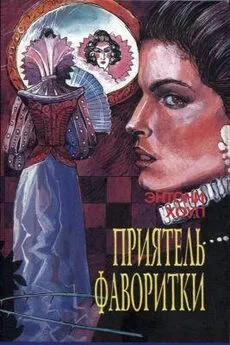
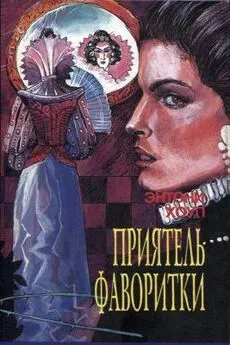
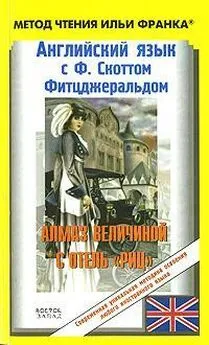

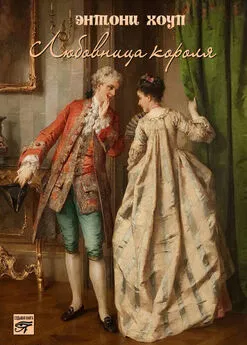
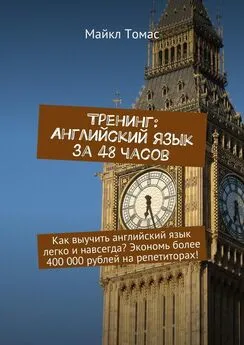
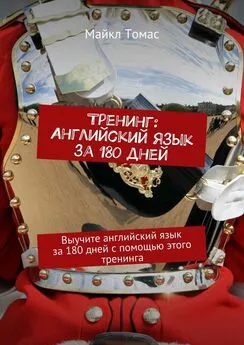
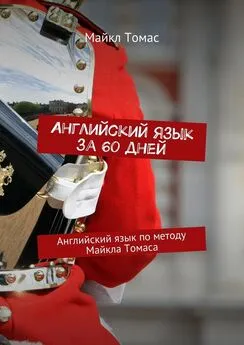

![Энтони Хоуп - Пленник Зенды. Месть Руперта [сборник]](/books/1090466/entoni-houp-plennik-zendy-mest-ruperta-sbornik.webp)